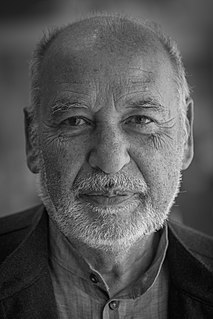A Quote by Gosho Aoyama
No matter how well you think you've hidden, you'll always leave behind a trace. And the more you try to hide that trace, the more obvious and troublesome it will become.
Related Quotes
You see, evil always contains the seeds of its own destruction. It is ultimately negative, and therefore encompasses its downfall even at its moments of apparent triumph. No matter how grandiose, how well-planned, how apparently foolproof of an evil plan, the inherent sinfulness will by definition rebound upon its instigators. No matter how apparently successful it may seem upon the way, at the end it will wreck itself. It will founder upon the rocks of iniquity and sink headfirst to vanish without trace into the seas of oblivion.
I believe the earth gets warmer, and I also believe the earth gets cooler, and I think history points out that it does that and that the idea that man through the production of CO2 which is a trace gas in the atmosphere and the manmade part of that trace gas is itself a trace gas is somehow responsible for climate change is, I think, just patently absurd when you consider all of the other factors.
If we don't understand how metaphor works we will misunderstand most of what we read in the Bible. No matter how carefully we parse our Hebrew and Greek sentences, no matter how precisely we use our dictionaries and trace our etymologies, no matter how exactly we define the words on the page, if we do not appreciate the way a metaphor works we will never comprehend the meaning of the text.
The world is like a sheet of paper on which something is typed. The reading and the meaning will vary with the reader, but the paper is the common factor, always present, rarely perceived. When the ribbon is removed, typing leaves no trace on the paper. So is my mind - the impressions keep on coming, but no trace is left.
I want viewers want to talk about The Conquest. I want the dialogue to start after the movie. The cinema is there to leave a trace. I hope my film leaves a trace and that it will open a door for French cinema and that tomorrow other directors will make political movies. The job of a filmmaker today is to talk about the world surrounding him and, through his movies, to both entertain and raise questions about modern society.
When we have the same thought again, the line of the original thought is deepened, causing what's called a memory trace. With each repetition the trace goes deeper and deeper, forming and embedding a pattern of thought. When an emotion is tied to this thought pattern, the memory trace grows exponentially stronger.






































